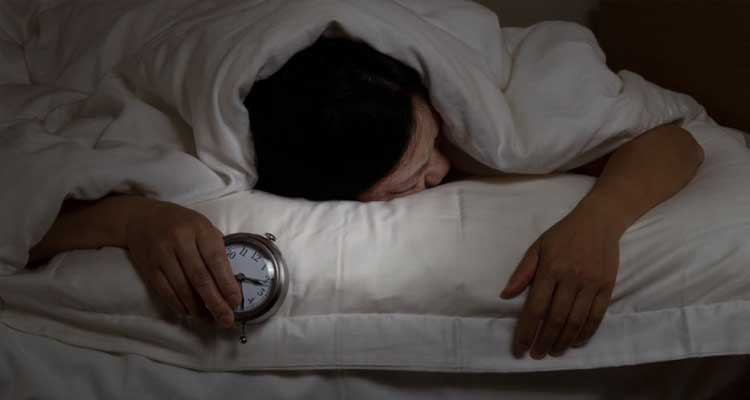Why might spending more time in the sun improve a person’s mood? A new study by researchers at Harvard-affiliated Brigham and Women’s Hospital suggests that the sleep It could be the key.
The importance of sleep regularity
The study, which involved more than 6,600 participants, found that participants who spent more time in bright light had more regular rest and that more regular sleep was associated with fewer symptoms of depression and a lower chance of mild or severe depression. The findings are published in JAMA Network Open .
“Getting regular, consistent sleep has far-reaching effects on our health,” said co-author Susan Redline, MD, PhD, the Peter C. Farrell Professor of Sleep Medicine at Harvard Medical School and a senior physician in the Brigham’s Division of Sleep and Circadian Disorders. “Future studies examining bright light therapy should not overlook the role that sleep regularity may have in influencing mood and depressive symptoms.”
The study, led by first author Danielle A. Wallace, also of the Division of Sleep and Circadian Disorders, used data collected from 2011 to 2014 by the National Health and Nutrition Examination Survey.

The team investigated whether exposure to bright light (at a level generally equivalent to daylight exposure) was associated with symptoms of depression and, if so, whether the Sleep Regularity Index (a measure of the consistency of daily sleep schedules) explained this association. Bright light and sleep regularity were measured using a wrist-worn device.
“We found that more time in bright light was modestly associated with fewer symptoms of depression, and that regularity of sleep explained some of this association,” Wallace said. “Higher vitamin D status was also associated with more exposure to bright light and more regularity of sleep, but not with symptoms of depression.”
The authors noted that the results are limited by the cross-sectional nature of the data and therefore causality cannot be determined. For example, symptoms of depression may influence time spent outdoors and exposure to bright light. Future research should follow participants over time to assess the role of regularity of sleep in the relationship between light exposure and mood.
Very irregular sleep is associated with a higher risk of dementia
People with highly irregular sleep patterns may be at higher risk for dementia than those with more regular sleep patterns, according to new research published in the online issue of Neurology . The study doesn’t prove that irregular sleep patterns cause dementia. It just shows an association.
Regularity of sleep is the consistency with which you fall asleep and wake up at the same time every day.
“Healthy sleep recommendations often focus on getting the recommended amount of sleep, which is seven to nine hours a night, but there is less emphasis on maintaining regular bedtimes,” said study author Matthew Paul Pase, Ph.D., of Monash University in Melbourne, Australia. “Our findings suggest that the regularity of a person’s sleep is an important factor when considering a person’s dementia risk.”
The study involved 88,094 people with an average age of 62 in the UK. They were followed for an average of seven years.
Participants wore a wrist device for seven days that measured their sleep cycle. Researchers then calculated the participants’ sleep regularity. They determined the probability of being in the same sleep state, asleep or awake, at any two points 24 hours apart, averaged over seven days.

A person who sleeps and wakes up at exactly the same time every day will have a sleep regularity index of 100, while a person who sleeps and wakes up at different times every day will have a score of zero.
The researchers then examined medical records to identify which participants had developed dementia and found that 480 people had developed the disease.
Researchers found links between sleep regularity scores and dementia risk. Compared to those with an average sleep regularity score, dementia risk was higher for people who had the most irregular sleep patterns.
People in the lowest 5th percentile had the most irregular sleep with an average score of 41. Those in the highest 95th percentile had the most regular sleep with an average score of 71. People in between these two groups had an average sleep regularity score of 60.
After adjusting for age, sex, and genetic risk for Alzheimer’s, researchers found that those with the most irregular sleep patterns were 53 percent more likely to develop dementia than people in the middle group. For people with the most regular sleep patterns, researchers found that they did not have a lower risk of developing dementia than people in the middle group.
“Effective sleep health education combined with behavioral therapies may improve irregular sleep patterns,” Pase said. “Based on our findings, people with irregular sleep may only need to improve sleep regularity to medium levels, versus very high levels, to prevent dementia. Future research is needed to confirm our findings.”
Pase said that while they took into account several factors that may influence dementia risk, they could not rule out that another unknown factor may play a role in the association between sleep regularity and dementia.
Adults with a regular, healthy sleep schedule have a lower risk of death
In addition to getting enough sleep each night, adults should maintain a regular sleep schedule, with regular bedtimes and wake-up times.
Adults with a regular sleep schedule and sufficient sleep duration had a 39% lower risk of mortality than adults with an irregular sleep schedule and insufficient sleep duration. Analyses controlled for potential confounders such as sociodemographics, lifestyle, health status, and measures of major sleep disturbances.
“Our study found that objectively regular sleepers tend to live longer than objectively irregular sleepers, regardless of whether they have a serious sleep disorder,” said lead author Joon Chung, PhD, a sociology postdoctoral fellow at Harvard Medical School and in the Division of Sleep and Circadian Disorders at Brigham and Women’s Hospital in Boston.

“The findings suggest that it would be beneficial to broaden the public debate about the importance of a good night’s sleep and to broaden this goal to achieve many consecutive nights of sleep, on weekdays and weekends.”
Healthy sleep requires adequate duration, appropriate timing, good quality, regularity, and the absence of sleep disturbances or disorders. The American Academy of Sleep Medicine and the Sleep Research Society recommend that adults regularly sleep 7 or more hours per night to promote optimal health.
The researchers analyzed data from the Multi-Ethnic Study of Atherosclerosis Sleep Study, which involved 1,759 participants followed for a median of seven years. Sleep regularity and duration were classified using seven days of data collected via wrist actigraphy. There were 176 deaths during the study period.
Chung stressed that maintaining regular bedtime and wake-up times is essential for healthy sleep.
“If sleep were an eight-hour pill, it would be helpful to take the full dose at regular times and on a regular basis,” he said.
#Sleep #Regularity #Exposure #Bright #Light #Helps